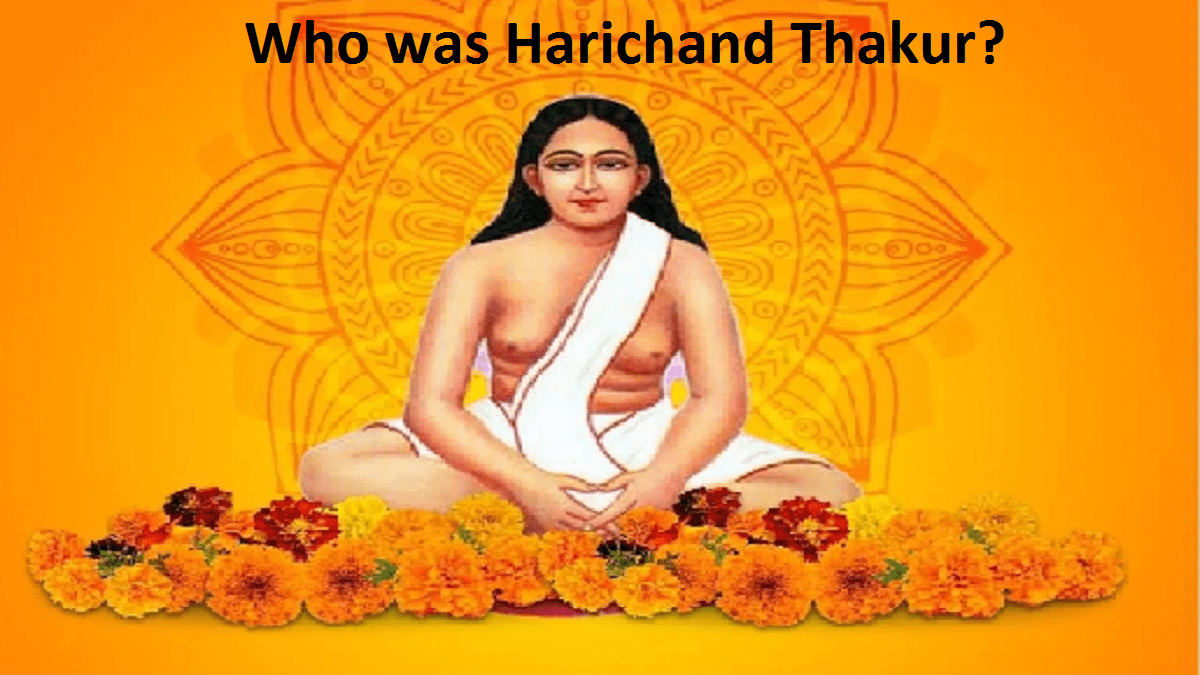
Harichand Thakur: On the occasion of the 212th birth anniversary of Sri Sri Harichand Thakur, Prime Minister Narendra shared a tweet urging people to witness the sanctity and triumph of Matua Maha Mela. He wrote: “The MatuaMahaMela2023 is an important event that showcases the vibrant culture of the Matua community. I urge more people to visit the Mela. Humanity will always be indebted to Shri Shri Harichand Thakur Ji for showing the path of kindness and service “.
He #MatuaMahaMela2023 It is an important event that showcases the vibrant culture of the Matua community. I would urge more people to visit the Mela. Humanity will always be indebted to Shri Shri Harichand Thakur Ji for showing the path of kindness and service. https://t.co/srKlvFcGvR
– Narendra Modi (@narendramodi)
March 17, 2023
About Harichand Thakur
He worked among the untouchables of the Bengal presidency. He was born in 1812 in Orakandi, Bangladesh, in a peasant family of the Thakur community (SC community). Thakur’s family were Vaishnavite Hindus who founded a sect of Vaishnavite Hinduism known as Matua.
The members of the Namasudra community adopted this and were later also called by the common pejorative name of Chandalas. They were considered untouchable.
This sect opposed caste oppression and later attracted followers from other communities that were marginalized by the upper castes, formed by Malis and Telis. Thakur’s followers consider him God and also call him Thakur, an avatar of Vishnu or Krishna. Therefore, he came to be known as Sri Sri Harichand Thakur.
Matua Maha Mela 2023: Date, time, address, everything to know about Shri Shri Harichand Thakur Ji
He was married to “Jagat Mata” Shanta Mata and had two children. He died in the Faridpur district of Bangladesh around 1878. After the death of Sri Sri Harichand Thakur, one of his sons, named Guruchand Thakur, collaborated with the English Baptist medical missionary Cecil Silas Mead, who worked and lived among the Namasudras to obtain the The Chandala people were recategorized as Namasudras.
Sri Sri Harichand Thakur undoubtedly dedicated his life to the cause of upliftment of the downtrodden and deprived people in undivided Bengal during the pre-independence era.
Now, take a look at the Matua community.
About Matuas
The Matua are originally from East Pakistan and migrated to India during the partition and after the creation of Bangladesh. A considerable number are yet to obtain Indian citizenship.
As the BJP promised to fast-track citizenship for migrants under the Citizenship (Amendment) Act (CAA), this was one of the reasons why Matua voters supported the NDA in the 2019 Lok Sabha polls.
The late Matua Mahasangha matriarch Binapani Devi Thakur was awarded the Banga Bibhushan in November 2018. It is the highest civilian award in West Bengal.
One of the largest SC groups in Bengal is the Namasudras. According to 2001 census data, they constituted about 17.4 percent of the population, behind the Rajbanshis by about 18.4 percent.
The ancient demand for citizenship of the Matua community
As we all know, the BJP-led NDA government promised to implement the CAA, so the Matua community helped the saffron party win the majority of SC constituencies in Bengal in 2019.
The long-standing demand of the refugee community is to obtain citizenship. This year in January, Union Minister of State for Ports, Shipping and Waterways Shantanu Thakur and BJP MLAs in West Bengal belonging to the Matua community renewed their demand for immediate implementation of the CAA .
At a meeting chaired by the Union Minister at Thakurnagar in North 24 Parganas district, the community headquarters in which the Matua community decided to take to the streets to protest the delay in implementation of the CAA. Around 40 leaders attended the Matua community meeting.
In 2019, the BJP-led central government enacted the Citizenship Amendment Act to grant citizenship to religious minorities from Bangladesh, Pakistan and Afghanistan who had to flee their countries due to persecution. On December 11, 2019, Parliament approved the law and presidential approval was received the next day. However, the law has not yet been implemented because the rules under the CAA have not yet been formulated.
Source: Indianexpress
READ| Swami Sivananda Biography: Birth, Age, Family, Social Service, Yoga and More About the Eldest Padma Shri Awardee
Categories: Optical Illusion
Source: ptivs2.edu.vn